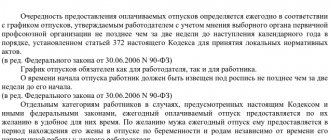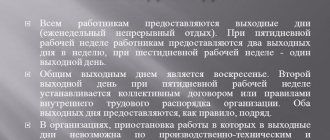Every year, supervisory and control authorities record a significant number of violations of the labor rights of workers, including those employed in the pharmaceutical sector. The root cause of many of these violations is the failure of employers to comply with the procedures for concluding, amending and/or terminating an employment contract. How, in accordance with the law, should an employment contract be concluded between a pharmacist entering work in a pharmacy or other pharmaceutical organization and the employer?
FIRST. The conclusion of an employment contract is preceded by the presentation by the person applying for work of the necessary documents, which we will describe in more detail below, and familiarization with local regulations directly related to the upcoming work activity of this person, for example, with the employer’s internal labor regulations, job descriptions ) instructions, etc.
Let us clarify that the main documents for concluding an employment contract with a person applying for work in a pharmaceutical organization are a passport and a document on pharmaceutical education. The need to provide other documents on education or qualifications is determined by the employer, taking into account the provisions of parts three to six of Article 69 of the Federal Law of November 21, 2011 No. 323-FZ.
Persons liable for military service and persons subject to conscription for military service, in addition, provide a military registration document (military ID; registration certificate). At the same time, the absence of a work record book and/or an insurance certificate for state pension insurance is not an obstacle to concluding an employment contract. We will discuss the grounds for refusal to conclude an employment contract below.
SECOND. A mandatory preliminary medical examination is required for persons applying for work in medical organizations that carry out, among other things, pharmaceutical activities, persons under the age of 18, as well as other persons listed in the relevant provisions of federal regulations and decisions of local governments.
THIRD. Before preparing a draft employment contract, the employer checks that there are no obstacles to concluding it with the person applying for work. Some of the most common obstacles include:
- lack of necessary documents;
- discrepancy between the information specified in the documents and the actual state of affairs;
- the person applying for work has contraindications to its performance due to health reasons.
FOURTH. The draft employment contract is drawn up in writing on paper, in at least two copies. This document must contain all the information listed in part one of Article 57 of the Labor Code of the Russian Federation, and all unconditionally mandatory or essential conditions listed in part two of the same article.
FIFTH. A person applying for a job is given the opportunity to familiarize himself with the draft employment contract and receive oral explanations from the employer regarding the essence of those provisions of the draft, the meaning of which is not entirely clear. When familiarizing yourself with the draft employment contract, the completeness and correctness of the information and conditions are checked, which, if necessary, are replaced with the correct ones or supplemented with missing information.
SIXTH. Additional conditions may be included in the draft employment contract with the consent of the person applying for work and the employer. Looking ahead a little, let us explain that the inclusion of additional conditions is possible even after signing an employment contract during the period of its validity by concluding a separate written agreement (more details about this will be discussed in the article on changing the employment contract. Author's note).
SEVENTH. If they agree with the draft employment contract and the changes or additions made to it, the person applying for work and the employer sign on each copy. The employer's signature is certified by a seal impression, if available[2].
The fact that a person applying for a job has received a copy of the employment contract is certified by a signature on the copy intended for the employer. When concluding an employment contract through the exchange of documents on electronic media, the employer, no later than three calendar days from the date of conclusion of the employment contract, is obliged to send a copy of the employment contract on paper to the person applying for work by regular mail. Usually a registered letter with notification is used.
EIGHTH. The employee is obliged to begin work under the employment contract on the next working day after the employment contract comes into force or on the day specified in the employment contract.
The fact of hiring is certified by the employer issuing - on the basis of an employment contract that has entered into force - an order or instruction on hiring. The employee must be familiarized with the employment order in person, against signature, within no more than three calendar days after its publication. A copy of such an order, as well as other work documents, is issued to the employee upon his request free of charge, within the period established by the employer’s local regulations.
Refusal to conclude an employment contract is permitted only in connection with objective circumstances that make the conclusion of such an agreement with the relevant person impossible. Thus, a person applying for a job at a pharmaceutical organization may be denied an employment contract due to:
- lack of required qualifications, including documents certifying the presence of such qualifications;
- the presence of contraindications to performing work stipulated by the employment contract due to health reasons, especially if we are talking about harmful or dangerous working conditions;
- disqualification, other administrative punishment or a court verdict that has entered into legal force depriving a person applying for work of the right to occupy certain positions or engage in certain activities, including pharmaceutical activities.
A refusal to conclude an open-ended employment contract is also considered legal if, due to objective reasons and taking into account the provisions of Article 59 of the Labor Code of the Russian Federation, only a fixed-term employment contract - for a period of no more than five years - can be concluded with a person applying for a job.
A person who is denied an employment contract has the right to demand that the employer provide the reason for the refusal in writing. The deadline for fulfilling this requirement is no more than seven working days. Refusal to conclude an employment contract can be appealed in court.
EMPLOYMENT CONTRACT with a pharmacist
"__" ____________ 20__
(name or full name of the employer), hereinafter referred to as "Employer", represented by (position, full name), acting on the basis of (Charter, entrepreneur registration certificate, etc.), with on the one hand, and a citizen of the Russian Federation (last name, first name, patronymic), hereinafter referred to as “Employee”, on the other hand, entered into an agreement as follows:
Read more Information about the integrity of the supplier 44 Federal Law
Subject of the Agreement
1. THE SUBJECT OF THE AGREEMENT
1.1. Under this agreement, the Employer undertakes to work as a pharmacist, to provide working conditions provided for by labor legislation, legislation and other regulatory legal acts containing labor law norms, a collective agreement (if concluded), agreements, local regulations and this agreement, in a timely manner and in pay the employee wages in full, and the employee undertakes to personally perform the labor function defined by this agreement, comply with job descriptions and internal labor regulations in force for this Employer.
1.2. Work under a contract is for the Employee (main/part-time).
1.3. The Employee’s place of work is a pharmacy located at ____________________.
1.4. The employee is given a probationary period: ____________________.
Conditions of remuneration of the Employee
3.1. For the performance of labor duties, the Employee is set an official salary (tariff rate) in the amount of ________________ (________________) rubles per month.
3.2. The Employee's wages are paid by way of (issuance of cash/by transfer to the Employee's bank account).
3.3. The employer sets additional payments, allowances and incentive payments. The amounts and conditions of such additional payments, allowances and incentive payments are determined in the Regulations on employee bonuses (approved by the Employer "__" ____________ ____), which the Employee was familiarized with when signing the contract.
3.4. Deductions from the Employee's salary are made only in cases provided for by the Labor Code of the Russian Federation and other federal laws.
Hourly form of remuneration
Recording of working hours is mandatory, no matter how the payment of remuneration for labor is organized. But in some systems it is precisely this that is the determining factor that affects the amount of money earned and the features of their accrual.
4.5. If the Employee, along with his main job, performs additional work in another position or performs the duties of a temporarily absent employee without being released from his main job, the Employee is paid additionally in accordance with the additional agreement.
Working hours and rest hours. Vacations
4.1. The employee is assigned a ____________-hour work week and a normal working day.
The employee is given days off on ____________.
4.2. The employee is granted annual basic paid leave of ____________ calendar days. Paid leave must be provided to the employee annually. The right to use vacation for the first year of work arises for the employee after six months of continuous work with this employer. By agreement of the parties, as well as in cases established by law, paid leave may be granted to the employee before the expiration of six months. Leave for the second and subsequent years of work can be granted at any time of the working year in accordance with the order of provision of annual paid leave established by a given employer.
4.3. The employee is granted annual additional paid leave (the name for which the leave is for, the number of calendar or working days of leave is indicated if the employee is granted it) lasting ____________ days.
4.4. For family reasons and other valid reasons, the Employer may, at his request, grant a short-term leave without pay.
Employment contract with the manager of a pharmacy warehouse
Employment contract with the manager of a pharmacy warehouse
_______________, hereinafter referred to as the "Employer", represented by _______________, acting on the basis of _______________, on the one hand, and citizen _______________, hereinafter referred to as the "Employee", on the other hand, collectively referred to as the "Parties", have entered into this Employment Agreement as follows:
Subject of the agreement
1.2. Working for the Employer is the main place of work/part-time work for the Employee 1 .
1.3. The employee is given a probationary period of _____ (__________) months from the date of commencement of work specified in clause 2.1 of this Employment Agreement.
1.4. The employee reports directly to _______________.
Contract time
2.1. The employee must begin performing his job duties from “__”___________ ____.
2.2. This Agreement is concluded for an indefinite period/for a period of up to “__”___________ ____.
Rights and obligations of the Employee
3.1. The employee is obliged:
3.1.1. Conscientiously perform the following duties:
3.1.1.1. Manage the work of the pharmacy warehouse for the receipt, storage and dispensing of medicines, biological products, medical instruments, equipment, sanitary, household and special property, their placement, taking into account the most rational use of warehouse space, facilitating and accelerating the search for necessary material assets.
3.1.1.2. In order to preserve material assets, ensure the maintenance of temperature conditions and other special storage conditions for medicines, biological products, medical instruments, equipment, sanitary and special property, as well as compliance with the rules for storing material assets.
3.1.1.3. Regularly check the quantitative and qualitative condition of stored property (including upon acceptance) and take measures to eliminate identified deficiencies.
3.1.1.4. Ensure the maintenance of records and established reporting on material assets.
3.1.1.5. Participate in property inventories.
3.1.1.6. Organize fire safety and labor protection measures.
3.1.1.7. Implement means of automated control of production processes, as well as means of mechanization of warehouse work.
3.1.2. Do not disclose confidential information (official, commercial, technical, personal or other) owned by the Employer and (or) its counterparties.
3.1.3. Treat the property of the Employer and other employees with care and, if necessary, take measures to prevent damage to property.
3.1.4. Comply with the procedure established by the Employer for storing documents, material and monetary assets.
3.2. The employee has the right to:
3.2.1. Amendment and termination of this Employment Agreement in the manner and under the conditions established by the Labor Code of the Russian Federation and other federal laws.
3.2.2. Providing the work specified in clause 1.1 of this Employment Agreement, as well as a workplace that meets state regulatory labor protection requirements.
3.2.3. Timely and full payment of wages in accordance with your qualifications, complexity of work, quantity and quality of work performed.
3.2.4. Mandatory state social insurance in the manner and under the conditions established by the current legislation of the Russian Federation for the period of validity of this employment contract.
3.2.5. Complete reliable information about working conditions and labor protection requirements in the workplace.
3.2.6. The employee also has other rights provided for by the labor legislation of the Russian Federation, the Internal Labor Regulations and other local regulations.
Rights and obligations of the Employer
4.1. The employer undertakes:
4.1.1. Comply with labor legislation and other regulatory legal acts containing labor law norms, local regulations, terms of agreements and this Employment Agreement.
4.1.2. Provide the Employee with work in accordance with the terms of this Employment Agreement.
4.1.3. Ensure safe working conditions in accordance with the requirements of the Safety Regulations and labor legislation of the Russian Federation.
4.1.4. Provide the Employee with a properly equipped workplace, provide him with equipment, tools, technical documentation and other means necessary to perform his job duties.
4.1.5. Pay the Employee in the amount established in clause 5.1 of this Employment Agreement.
4.1.6. Pay bonuses and remuneration in the manner and on the terms established by the Employer.
4.1.7. Carry out compulsory social insurance of the Employee in the manner established by the current legislation of the Russian Federation.
4.1.8. Compensate for harm caused to the Employee in connection with the performance of his labor duties, as well as compensate for moral damage in the manner and under the conditions established by the Labor Code of the Russian Federation, other federal laws and other regulatory legal acts of the Russian Federation.
4.1.9. Perform other duties provided for by labor legislation and other regulatory legal acts containing labor law standards, agreements, local regulations and this Employment Agreement.
This is important to know: State the employment contract in a new edition: sample
4.2. The employer has the right:
4.2.1. Change and terminate this Employment Agreement with the Employee in the manner and under the conditions established by the Labor Code of the Russian Federation and other federal laws.
4.2.2. Demand that the Employee fulfill his job duties and take care of the property of the Employer and other employees, comply with the Internal Labor Regulations and other local regulations.
4.2.3. Encourage the Employee in the manner and amount provided for in the Regulations on Bonuses and other local regulations of the Employer.
4.2.4. Bring the Employee to disciplinary and financial liability in cases and in the manner provided for by the Labor Code of the Russian Federation and other federal laws.
4.2.5. Exercise other rights provided for by the labor legislation of the Russian Federation, Internal Labor Regulations and other local regulations.
Conditions of remuneration of the Employee
5.1. For the performance of labor duties, the Employee is paid a salary in the amount of _____ (__________) rubles per month.
5.2. In addition to the official salary, the Employee is provided with incentive and compensation payments (additional payments, allowances, bonuses, etc.). The amounts and conditions of such payments are determined in the Regulations on bonus payments to employees “__________”, which the Employee was familiarized with when signing this Agreement.
5.3. The Employee's wages are paid twice a month on _____ and _____ dates by issuing cash at the Employer's cash desk (option: by wire transfer to the Employee's bank account).
5.4. Deductions may be made from the Employee's salary in cases provided for by the legislation of the Russian Federation.
Working time and rest schedule
6.1. The employee is assigned a _____-day work week of _____ (__________) hours. Weekends are _________________________.
6.2. Work start time is _______________.
Finish time _______________.
6.3. During the working day, the Employee is given a break for rest and food from _____ hours to _____ hours, which is not included in working hours.
6.4. The employee is granted annual paid leave of _____ (at least 28) calendar days.
6.4.1. The right to use vacation for the first year of work arises for the Employee after six months of his continuous work with this Employer. By agreement of the Parties, as well as in cases established by the current legislation of the Russian Federation, paid leave may be provided to the Employee before the expiration of six months.
6.5. For family reasons and other valid reasons, the Employee, upon his application, may be granted leave without pay for the duration established by the labor legislation of the Russian Federation.
Responsibility of the Parties
7.1. The parties are responsible for failure to fulfill or improper fulfillment of their duties and obligations established by the current legislation of the Russian Federation, Internal Labor Regulations, other local regulations of the Employer and this Employment Agreement.
7.2. For non-fulfillment or improper fulfillment by the Employee, through his fault, of the labor duties assigned to him, disciplinary sanctions may be applied to the Employee, provided for in Art. 192 of the Labor Code of the Russian Federation.
7.3. The employer bears financial and other liability in accordance with the current legislation of the Russian Federation.
7.4. The Employee is financially liable both for direct actual damage directly caused by him to the Employer, and for damage incurred by the Employer as a result of compensation for damage to third parties.
Guarantees and compensation
8.1. During the period of validity of this Employment Agreement, the Employee is subject to all guarantees and compensation provided for by the current labor legislation of the Russian Federation.
8.2. Damage caused to the Employee by injury or other damage to health associated with the performance of his work duties is subject to compensation in accordance with the current labor legislation of the Russian Federation.
Termination of the Employment Contract
9.1. This Employment Agreement may be terminated on the grounds provided for by the current legislation of the Russian Federation.
9.2. The Employee must be familiarized with the order (instruction) of the Employer to terminate this Employment Agreement against signature.
9.3. In all cases, the day of dismissal of the Employee is the last day of his work.
Other conditions
10.1. The terms of this Employment Agreement are confidential and are not subject to disclosure.
10.2. The terms of this Employment Agreement are legally binding for the Parties from the moment it is concluded by the Parties. All changes and additions to this Employment Agreement are formalized by a bilateral written agreement.
10.3. Disputes between the Parties arising during the execution of this Employment Agreement are considered in the manner established by the current legislation of the Russian Federation.
10.4. In all other respects that are not provided for in this Employment Agreement, the Parties are guided by the current legislation of the Russian Federation governing labor relations.
10.5. This Employment Agreement has been drawn up in two copies having equal legal force, one of which is kept by the Employer and the other by the Employee.
Nature of working conditions
5.1. The work performed by the employee under this contract (indicated whether or not it relates to difficult, harmful and (or) dangerous working conditions).
5.2. The following working conditions are created for the employee: ________________.
5.3. The employee is provided with the following labor protection equipment: (indicate how this is manifested - special clothing, devices).
5.4. The employee is provided with the following compensations and benefits for work (indicate what kind of work, for example, hard work or work with harmful and (or) dangerous working conditions) (indicate exactly what compensations and benefits).
5.5. The work performed under this employment contract is of the nature of ____________________.
Rights and obligations of the Employee
6.1. Job responsibilities of the Employee:
6.1.1. Accepts prescriptions and requirements of medical organizations, dispenses medicines and medical products.
6.1.2. Manufactures medications and checks their quality using the simplest methods of in-pharmacy control.
6.1.3. Participates in the acceptance of goods, their distribution to storage locations, ensures storage conditions for medicines and medical products in accordance with their physical and chemical properties and current storage rules.
6.1.4. Provides advisory assistance to packers on packaging medicines.
6.1.5. Conducts health education and information work among the population about medicines and medical products, their use and storage at home.
6.1.6. Provides first aid in emergency situations.
6.1.7. Complies with internal labor regulations, labor discipline, labor protection and labor safety requirements.
6.1.8. Treats with care the property of the Employer (including the property of third parties held by the Employer, if the Employer is responsible for the safety of this property) and other employees.
6.1.9. Immediately notifies the Employer of the occurrence of a situation that poses a threat to the life and health of people, the safety of the Employer’s property (including the property of third parties held by the Employer, if the Employer is responsible for the safety of this property).
6.1.10. By order of the Employer, he goes on business trips in Russia and abroad.
6.2. The employee has the right to:
6.2.1. Amendment and termination of the contract in the manner and under the conditions established by the Labor Code of the Russian Federation and other federal laws;
6.2.2. Providing him with work stipulated by the contract;
6.2.3. A workplace that complies with state regulatory requirements for labor protection and the conditions provided for by the collective agreement (if any);
6.2.4. Free provision of special clothing, special footwear and other personal protective equipment in accordance with established standards;
6.2.5. Timely and full payment of wages in accordance with your qualifications, complexity of work, quantity and quality of work performed;
6.2.6. Rest ensured by the establishment of normal working hours, reduced working hours for certain professions and categories of workers, the provision of weekly days off, non-working holidays, paid annual leave;
6.2.7. Complete reliable information about working conditions and labor protection requirements in the workplace;
6.2.8. Professional training, retraining and advanced training in the manner established by the Labor Code of the Russian Federation and other federal laws;
6.2.9. Conducting collective negotiations and concluding collective agreements and agreements through their representatives, as well as information on the implementation of the collective agreement (if any), agreements;
6.2.10. Protection of your labor rights, freedoms and legitimate interests by all means not prohibited by law;
6.2.11. Resolution of individual and collective labor disputes, including the right to strike, in the manner established by the Labor Code of the Russian Federation and other federal laws;
Read more District police officer, what is the correct name for the position?
6.2.12. Compensation for damage caused to him in connection with the performance of labor duties, and compensation for moral damage in the manner established by the Labor Code of the Russian Federation and other federal laws;
6.2.13. Compulsory social insurance in cases provided for by federal laws.
Rights
The pharmacist has the right:
3.1. For all social guarantees provided for by the legislation of the Russian Federation.
3.2. To provide free special clothing, special shoes and other personal protective equipment.
3.3. Receive information about the activities of the organization necessary to perform functional duties from all departments directly or through the immediate superior.
3.4. Require the management of the organization to provide assistance in the performance of their professional duties and the exercise of rights.
3.5. Get acquainted with draft orders of management relating to its activities.
3.6. Take part in meetings that discuss issues related to her work.
3.7. Require the creation of conditions for the performance of professional duties, including the provision of the necessary equipment, inventory, a workplace that complies with sanitary and hygienic rules and regulations, etc.
3.8. Improve your professional qualifications.
3.9. [Other rights provided for by the labor legislation of the Russian Federation].
Rights and obligations of the Employer
7.1. The employer is obliged:
7.1.1. Comply with labor legislation and other regulatory legal acts containing labor law norms, local regulations, and the terms of a collective agreement (if any);
7.1.2. Provide the Employee with work stipulated by the contract;
7.1.3. Ensure safety and working conditions that comply with state regulatory labor protection requirements;
7.1.4. Provide the Employee with equipment, tools, technical documentation and other means necessary to perform job duties;
7.1.5. Provide the Employee with equal pay for work of equal value;
7.1.6. Pay the full amount of wages due to the Employee within the terms established in accordance with the Labor Code of the Russian Federation, the collective agreement (if any), and the Internal Labor Regulations;
7.1.7. Conduct collective negotiations, as well as conclude a collective agreement in the manner established by the Labor Code of the Russian Federation;
7.1.8. Provide the Employee's representatives with complete and reliable information necessary for concluding a collective agreement, agreement and monitoring their implementation;
7.1.9. Introduce the Employee, against signature, to the adopted local regulations directly related to his work activity or position in the organization;
7.1.10. Carry out compulsory social insurance of the Employee in the manner established by federal laws;
7.1.11. Compensate for harm caused to the Employee in connection with the performance of labor duties, as well as compensate for moral damage in the manner and under the conditions established by the Labor Code of the Russian Federation, other federal laws and other regulatory legal acts of the Russian Federation;
7.1.12. Perform other duties provided for by labor legislation and other regulatory legal acts containing labor law standards, a collective agreement (if any), agreements, and local regulations.
7.2. The employer has the right:
7.2.1. Change and terminate the contract with the Employee in the manner and under the conditions established by the Labor Code of the Russian Federation and other federal laws;
7.2.2. Encourage the Employee for conscientious, effective work;
7.2.3. Demand that the Employee fulfill his job duties and take care of the property of the Employer (including the property of third parties located by the Employer, if the Employer is responsible for the safety of this property) and other employees, and compliance with the Internal Labor Regulations;
7.2.4. Bring the Employee to disciplinary and financial liability in the manner established by the Labor Code of the Russian Federation and other federal laws;
7.2.5. Adopt local regulations;
7.2.6. Conduct certification of the Employee in accordance with the Certification Regulations in order to identify the real level of professional competence of the Employee.
Sample form of an employment contract with a medical worker
with a medical professional
_______________________ "__" _____________ 20__
(place of conclusion of the contract) (date of conclusion of the contract)
(full name of employer)
represented by _______________________ _________________________________________,
(job title) (full name)
acting on the basis ______________________________________________,
This is important to know: Minutes of the labor collective meeting on the collective agreement
(Charter, Regulations, Power of Attorney)
hereinafter referred to as the “Employer”, on the one hand, and
___________________________, hereinafter referred to as “Employee”,
on the other hand, collectively referred to as the “Parties”, have entered into this agreement
1.1. The employee undertakes to provide qualified medical care
power in their specialty, using modern methods of prevention,
diagnostics, treatment and rehabilitation, approved for use in medicine
Qing practice, obeying the internal labor regulations in ________
and the Employer undertakes to provide him with the necessary working conditions, pre-
provided for by labor legislation, as well as timely and complete
payment of wages.
1.2. The employment contract was concluded on ________________________________.
(validity period of the employment contract)
1.3. The employee is obliged to start work on “___” ___________ 20__.
1.4. The probationary period for employment is _______________
1.5. Work for the Employer is for the Employee _________________
2. Rights and Obligations of the parties
2.1. The employee has the right to:
- providing him with work stipulated by this agreement;
- payment of wages in the amount and in the manner prescribed
— complete, reliable information about working conditions and requirements
- everyone does not protect their labor rights, freedoms and legitimate interests
in ways prohibited by law;
- compensation for damage caused to him in connection with the performance of labor
duties, and compensation for moral damage in the manner established
Labor Code of the Russian Federation, other federal laws;
— compulsory social insurance.
2.2. The employee is obliged:
- conscientiously fulfill their duties as prescribed by the
— maintain labor discipline;
— treat the property of the Employer and other employees with care;
- systematically improve your skills.
2.3. The employer has the right:
— encourage the Employee for conscientious, effective work;
— demand from the Employee the performance of his labor duties and safety
careful attitude towards the property of the Employer and other employees, compliance
labor discipline;
— bring the Employee to disciplinary and financial liability
ties in the manner established by the Labor Code and other federal laws
2.4. The employer is obliged:
— comply with labor laws and other legal regulations
acts containing labor law norms, local regulations, conditions
Via collective agreement, agreements and employment contracts;
— provide the Employee with the work stipulated by this agreement;
— ensure safety and working conditions that comply with state regulations;
gift regulatory requirements for labor protection;
— provide the Employee with equipment, tools, technical
documentation and other means necessary for the performance of his labor
- pay the full amount of wages due to the Employee
payment within the terms established by this agreement;
— introduce the Employee, upon signature, to the accepted local standards;
tive acts directly related to his work activity;
— provide for the Employee’s everyday needs related to his performance
— carry out compulsory social insurance of the Employee in accordance with
the order established by federal laws;
— compensate for damage caused to the Employee in connection with his performance
labor duties, as well as compensation for moral damage in the manner and
under the conditions established by the current legislation of the Russian Federation.
2.5. The parties have other rights and perform other obligations, provided
covered by current labor legislation.
3. Working time and rest time
3.1. The employee is assigned a __________ - day work week.
Work start time - ____ hour, end time - ____ hour, break - ____ hour.
Weekend - ___________________________________________________.
3.2. The employee is provided with an annual basic salary
launch lasting 28 calendar days. Annual paid from
the launch is provided in accordance with the current legislation on
3.3. The employee is provided with an annual additional payment
vacation lasting ______ calendar days. Annual supplement
full paid leave is provided in accordance with the current
labor legislation.
3.4. An employee may be granted leave without pay.
no payment in accordance with current labor legislation.
4. Terms of payment
4.1. The employee is paid a salary of ___________________
(________________________________) rubles per month.
4.2. For the conscientious performance of work duties by the employee
A monthly bonus is paid in the amount of ______________ rubles.
4.3. Salary is paid to the Employee twice a month
the procedure and deadlines established by the internal labor regulations
and a collective agreement.
4.4. When performing work outside of normal working hours,
during working hours, at night, on weekends and non-working holidays
days, when combining professions (positions), while performing duties
temporarily absent employee, the Employee is provided with appropriate
additional payments in the manner and amount established by the collective agreement and
local regulations.
4.5. For the period of validity of this employment contract for the Employee
all guarantees and compensations provided for by the current
labor legislation of the Russian Federation.
5. Responsibility of the Parties
5.1. In case of non-fulfillment or improper fulfillment by the Employee
their duties specified in this employment contract and job description
instructions, violations of the labor legislation of the Russian Federation, as well as causing
To the employer of material damage, he bears disciplinary, material and
other liability in accordance with the current legislation of the Russian Federation.
5.2. The medical worker is responsible for violations of rights
citizens in the field of health protection, resulting from non-compliance or
improper performance of his professional duties, in accordance with
in accordance with the legislation of the Russian Federation.
5.3. The Employer bears financial and other obligations to the Employee.
This is important to know: How additional agreements to an employment contract are numbered
liability in accordance with the current legislation of the Russian Federation.
6. Final provisions
6.1. Disputes between the Parties arising during the execution of this
employment contract are considered in the manner established by the Labor Code
dex of the Russian Federation and other federal laws.
6.2. In all other respects that are not provided for in this labor contract,
In other words, the Parties are guided by the legislation of the Russian Federation regulating labor
6.3. The employment contract is concluded in writing, drawn up in two
copies, each of which has equal legal force. All from-
changes and additions to this employment contract are drawn up in two
by prior written agreement.
6.4. This employment contract may be terminated on the grounds
provided for by current labor legislation.
7. Details and signatures of the Parties
____________________________ ___________________ ________________________
(name of the person’s position, (signature) (full name)
passport: series _______________________, N _______________________
issued _________________________________ “___” ___________ 200 __ g.
department code: _________________________________________________
registered at: ______________________________________________
Responsibility of the Parties
8.1. A party to a contract guilty of violating labor legislation and other regulatory legal acts containing labor law norms is liable in cases and in the manner established by the Labor Code of the Russian Federation and other federal laws.
8.2. The Employer bears financial and other liability to the Employee in accordance with the current legislation of the Russian Federation.
8.3. The financial liability of a party to a contract arises for damage caused by it to the other party to the contract as a result of its culpable unlawful behavior.
8.4. In cases provided for by law, the Employer is obliged to compensate the Employee for moral damage caused by unlawful actions and/or inaction of the Employer.
8.5. Each party is required to prove the amount of damage caused.
Employment contract, shift schedule, pharmacy sample
Involvement in material liability is carried out in the manner prescribed by contracts on material liability concluded with categories of employees established by law, as well as with Art. 232-233, 238-250 of the Labor Code of the Russian Federation.
Before the expiration of the notice period for dismissal, the employee has the right to withdraw his application at any time. Dismissal in this case is not carried out unless another employee is invited in his place in writing, who, in accordance with the Labor Code of the Russian Federation and other federal laws, cannot be refused to conclude an employment contract.
Termination of an employment contract
9.1. The grounds for termination of this employment contract are:
9.1.1. Agreement of the parties.
9.1.2. Termination of an employment contract at the initiative of the Employee. In this case, the Employee is obliged to notify the Employer no later than two weeks before the expected date of termination of this agreement. The specified period begins the next day after the Employer receives the Employee’s resignation letter.
9.1.3. Termination of an employment contract at the initiative of the Employer.
9.1.4. Other grounds provided for by the labor legislation of the Russian Federation.
9.2. The day of termination of the employment contract in all cases is the Employee’s last day of work, with the exception of cases where the Employee did not actually work, but retained his place of work (position).
9.3. The Employer has the right to decide to make a compensation payment to the Employee in the amount of ________________ in the case of ________________.
9.4. On the day of termination of the employment contract, the Employer is obliged to issue the Employee a work book and make payments to him in accordance with Article 140 of the Labor Code of the Russian Federation. Upon written application by the Employee, the Employer is also obliged to provide him with duly certified copies of documents related to work.
Employment contract, shift schedule, pharmacy sample
The selection of material is complete, unique, simple, intelligible and convenient for practical use. Then you’ll have to explain the difference between a schedule and a timesheet so that you don’t get confused. The main document confirming such accounting is the working time sheet, which records arrival and departure from work. I received the professional version of the HR package.
- The length of time for an employee to perform his duties should not exceed all relevant standards regulated in Russian legislation.
- The duration of a work shift for a certain team of workers cannot violate the established standards prescribed in Article 94 of the Labor Code of the Russian Federation.
- Article 110 of the Labor Code of the Russian Federation regulates the receipt by an employee of weekly rest, the duration of which cannot be less than 42 hours.
- It is impossible for the same employee to take on two consecutive shifts.
- If the work process falls within the time period from 22.00 to 6.00, then such a shift is usually called a night shift.
- If the established schedule is not agreed upon by the entrepreneur with the trade union body, such a document may be considered in the appropriate courts for further appeal.
- When a specialist’s work shift falls on a calendar holiday, in this case he is entitled to a double amount of money or the opportunity to choose another day for rest.
How long can a shift last?
What are internal labor regulations
In accordance with Art. 189 of the Labor Code of the Russian Federation PVTR is an act of an enterprise that must be accepted unconditionally, i.e. without fail. In some institutions it is customary to use other local papers, but for pharmaceuticals it is the PVTR standards that are relevant.
However, the employer, before approving them, undertakes to receive support from the trade union, which is engaged in representing the interests of employees on the basis of Art. 372 of the Labor Code of the Russian Federation, provided that it is available.
Preparation of PVTR is traditionally carried out by the legal or personnel department of the pharmacy company, after which the procedure for agreeing on their standards with the manager takes place. Usually these rules are a kind of addition to the provisions of the collective agreement, i.e. they are published in the form of an appendix or addendum (Article 190 of the Labor Code of the Russian Federation).
The current labor legislation states that through the PVTR the following nuances are determined at the enterprise:
- Daily routine (regulations - Article 189, Part 3 of the Labor Code of the Russian Federation);
- Dates on which advance payment and wages are paid, as well as other bonuses (Part 6 of Article 136 of the Labor Code of the Russian Federation);
- The procedure for granting auxiliary leave to persons performing labor functions within an irregular working day (the regulator of this provision is Article 118 of the Labor Code of the Russian Federation);
- Procedure for leaving on weekends (Article 111 of the Labor Code of the Russian Federation);
- Duration of stay during breaks and determination of places for recreation (Article 108 of the Labor Code of the Russian Federation);
- Duration of work time and mode, subject to optimal alternation of work with leisure (regulations - Articles 91, 100 of the Labor Code of the Russian Federation);
- Options for rewards for work well done (Article 191 of the Labor Code of the Russian Federation);
- Penalties for poor performance of labor functions (Article 192 of the Labor Code of the Russian Federation);
- Description of measures to prepare equipment, workwear, inventory and tools before entering a shift (Part 3 of Article 227 of the Labor Code of the Russian Federation).
Read more How long is maternity leave paid?
Employment contract, shift schedule, pharmacy sample
At the request of an employee who worked on a day off or a non-working holiday, he may be given another day of rest. In this case, work on a weekend or a non-working holiday is paid in a single amount, and a day of rest is not subject to payment.
A flexible working time regime is a form of organizing working time in which the beginning, end or total duration of the working day (shift) is determined by agreement of the parties (Article 102 of the Labor Code of the Russian Federation). At the same time, the employer ensures that the employee works the total number of working hours during the relevant accounting periods (working day, week, month, etc.).
Features of PVTR in a pharmacy
The structure of the PVTR in a pharmaceutical organization consists of several sections and points:
- General provisions. It describes the goals and objectives of using PVTR, their functioning in practice and conditions of use, as well as the procedure for making changes;
- The procedure for hiring a position, the grounds on which an employee can be dismissed. The mechanism for registration/dismissal and transfer to another workplace/position is also described. The procedure for removal from office is reflected. The documents that are requested from the applicant during the employment process are listed (their basic list is included in Article 65 of the Labor Code of the Russian Federation). An important role is played by the presence of a certificate confirming the qualification level of a professional;
- Rights and responsibilities of an employee. Art. is taken as a basis. 21 Labor Code of the Russian Federation. It is imperative to take into account the special conditions that are typical for the industry in question. Some duties may be borrowed from the pharmacist job description;
- Rights and obligations of the employer. Their reflection is carried out using the norms of Art. 22 of the Labor Code of the Russian Federation. Similar to the previous point - it is important to take into account the features characteristic of the pharmaceutical industry;
- Operating mode. It is common practice in pharmaceutical facilities to establish a rotating or staggered schedule. In practice, pharmacists work five days, 2/2 days, or perform duties according to a 24-hour schedule. PVTR must contain information about the duration of the shift, as well as the start and end times of the day, breaks, and the total number of shifts;
- The duration of the annual main and additional leave and the place to spend time during breaks, the procedure by which vacations are transferred. The time of lunch and the place of the meal are regulated, taking into account the general rules of hygiene and sanitation;
- The procedure in which measures will be applied regarding rewards (for well-performed job duties) and censure (for disciplinary violations). Level of responsibility for ignoring basic standards;
- Concluding information about the obligation to follow the PVTR by every employee without exception. The procedure in which labor disputes regarding violation of rules will be considered.
In comparison with other organizations, PVTR in a pharmacy implies the following features:
- Personnel are required to monitor the expiration dates of medications. When expired goods go on sale, the organization will be subject to fines by the relevant control authorities;
- Each specialist must be responsible for the property that is located within the walls of the establishment, as well as the surrounding area. That is, timely cleaning of the territory and removal of garbage is required.
- At night, an alarm system is installed in the establishment (after the last employee leaves), and in the morning it is removed (upon the first employee arrives at the workplace).
Pharmacy opening hours
Table 1
| No. | date | Time | Number of hours worked | Signature of the curator from the pharmacy |
| Parish | Care | |||
| 1. | 11.01.16 | 9:00 | 15:00 | |
| 12.01.16 | 9:00 | 15:00 | ||
| 13.01.16 | 9:00 | 15:00 | ||
| 14.01.16 | 9:00 | 15:00 | ||
| 15.01.16 | 9:00 | 15:00 |
Contents of the work performed
table 2
| date | Stage of propaedeutic practice | Contents of the work performed | Trainee's comments and suggestions | Signature of the curator from the pharmacy |
| 11.01.16 | Induction training. | Familiarity with the tasks and functions of pharmacies. | ||
| 12.01.16 | Personal hygiene requirements | Sanitary measures carried out in the pharmacy to comply with the sanitary regime. | ||
| 13.01.16 | Sanitary requirements for the production of extemporaneous dosage forms | Sanitary requirements for the conditions for the manufacture of drugs in a pharmacy; processing, washing and drying pharmaceutical glassware; receipt and storage of distilled water and water for injection. | ||
| 14.01.16 | Familiarization with the organization of work of the department of finished dosage forms | Principles of storing medicines in a pharmacy, taking into account toxicological and pharmacological groups, physicochemical properties, method of administration, expiration dates. Storage of medicines, pharmaceutical substances, medical devices, dressings in the pharmacy. | ||
| 15.01.16 | Familiarity with aseptic production conditions | Acquaintance with dosage forms manufactured under aseptic conditions, with the equipment used for the preparation of these dosage forms, with the features of the design and functioning of the aseptic block (box); studying the design of an autoclave, devices for obtaining purified water and water for injection, as well as ways of delivering water to workplaces, its use and storage. |
Practical skills and abilities acquired by students during internship:
The tasks of the pharmacy are the main tasks of providing medicines to the population,
hospital and ambulance
Pharmacy functions:
1. Logistics (reception, storage, inventory management);
2. Production (reception of requirements, production, control and release
medicines as required);
3. Information (providing health care workers with information about medications and medical devices);
4. Marketing (formation and implementation of assortment
policies, formation of applications for auctions and trades);
5. The main task of the pharmacy is the complete, timely provision of health care facilities with quality goods.
List the main sections of the internal regulations of the pharmacy:
1. strengthening labor discipline;
2. effective organization of work;
3. rational use of working time;
4. ensuring high quality and productivity of workers.
5. ensuring a regime of work and rest.
Introduction to the pharmacy (general characteristics):
1. Form of ownership State
Organizational and legal form Budgetary institution
The pharmacy was issued a license to carry out pharmaceutical activities
No. LO-12-02-000188 dated 04/06/2012. Ministry of Health of the Republic of Mari El.
A pharmacy with the right to manufacture aseptic solutions can engage in the following activities: storage of medicines for medical use, dispensing medicines for medical use, manufacturing medicines for medical use, transportation of medicines for medical use.
License valid: Indefinitely
2. Structure of the pharmacy:
Number of departments:
1. Production department;
2. Department of finished dosage forms.
Purpose, tasks and content of work of departments:
1. Production of extemporaneous dosage forms for the departments of the perinatal center.
2. Drawing up requests for the supply of goods, purchasing finished drugs and medical products, providing the departments of the perinatal center with the necessary range of goods..
3. The pharmacy sells the following product ranges:
1. Finished medicinal products for medical use
Reflection of the pharmacist's duties in the document
The main responsibilities of a specialist, prescribed in the internal labor regulations of the organization, are as follows:
- ordering and selling medicines;
- compliance with the basics of product display;
- maintaining the premises in proper condition;
- providing advice to clients;
- adherence to norms and service standards;
- control of expiration dates and quality of product items;
- solving commercial issues to create demand for goods;
- acceptance and compliance with proper conditions for its storage in cabinets and on racks;
- production of medicines based on recipes;
- provision of first aid in case of critical condition of the patient;
- preparation of related documents;
- strict adherence to moral and legal standards and professional ethics.
The list of responsibilities assigned to a specialist in this field is variable and depends on the specific enterprise. But this point is an integral element of the PVTR, since the functioning of the entire pharmacy facility depends on the activities of pharmacists.
Working extra hours
In continuously operating organizations and if it is impossible to stop work, overtime on a pre-holiday day is compensated by one of the following options: a) by providing additional rest time; b) with the consent of the employee, payment according to the standards for overtime work. The working hours are established by a collective agreement or internal labor regulations and must provide for the length of the working week (5-day with two days off, 6-day with one day off, with days off on a sliding schedule, work with irregular working hours for certain categories workers, duration of daily work (shift), start and end times of work, time of breaks in work, number of shifts per day, alternation of working and non-working days).
Introduction to PVTR
During the employment process, a pharmacist, pharmacist and any other newly minted worker undergoes the procedure of becoming familiar with the PVTR on the basis of a receipt, which is reflected in Art. 68 Labor Code of the Russian Federation.
After signing an employment contract by a pharmacist and drawing up a receipt, the following picture is formed: the employee must comply with the proposed standards without fail, and ignoring this requirement entails liability.
If the PVTR contains any points that seem not clear enough to the applicant for a position, the employer’s task is to explain them clearly and in detail. This will avoid misunderstandings and organize the work process in such a way that each party properly fulfills its duties and is able to interact with other employees of the organization on the basis of the document in question.
Welcome
Employees of pharmacy bases and warehouses 138 Pharmacist, pharmacist and packer directly involved in the preparation, packaging and control of medicines 6 6 139 Pharmacist, pharmacist, packer, head of the department (room) of toxic substances and his deputy, engaged in packaging, grinding, weighing and measuring toxic drugs substances of list “A”, approved by the State Pharmacopoeial Committee 12 6 Workers of control and analytical laboratories of pharmacy departments 140 Head of the laboratory, directly performing analysis work 12 6 141 Washer of dishes and ampoules, engaged in washing pharmaceutical glassware 6 142 Pharmacist, laboratory assistant 12 6 In addition, It should be noted that some pharmaceutical organizations are guided by Article 350 of the Labor Code of the Russian Federation, which provides for the establishment of reduced working hours of no more than 39 hours per week for medical workers.
Responsibility for violation
Disciplinary measures are taken against employees who perform their duties improperly or completely ignore the need to perform them.
- Disciplinary responsibility is represented by a reprimand, reprimand or dismissal;
- When determining the penalty the severity of the offense , additional circumstances in which the mistake was made, the employee’s general behavior at work and his characteristics are taken into account;
- The day on which flaws in the work were identified is considered the day when the immediate superior of the culprit was notified about them;
- Before taking extreme measures, it is required to request a written explanation from the employee, in which he is given a chance to state his position and, if possible, achieve a favorable, condescending attitude from the manager;
- If an employee refuses to write a note, this cannot become an obstacle to recovery. Witnesses will be required to confirm the fact of misconduct;
- The employer is given six months to take action. Along with this, the employee may be deprived of bonus payments, additional leave and other privileges, however, such “punishments” do not apply to penalties, since the provision of privileges is a right, not an obligation of the employer;
- After admitting guilt, the general director issues an order and indicates the reasons. If the employee disagrees with his position, he has the right to appeal.
Financially responsible employees also bear financial responsibility. If, through the fault of an employee, situations involving violations of the legislation on regulating the activities of pharmacies occur, administrative liability is expected to be imposed. It is associated with penalties depending on the degree of violation.
Thus, the internal labor regulations in a pharmacy are quite numerous and serious. Failure to comply with them entails liability.
For more information about internal labor regulations, watch the video:









